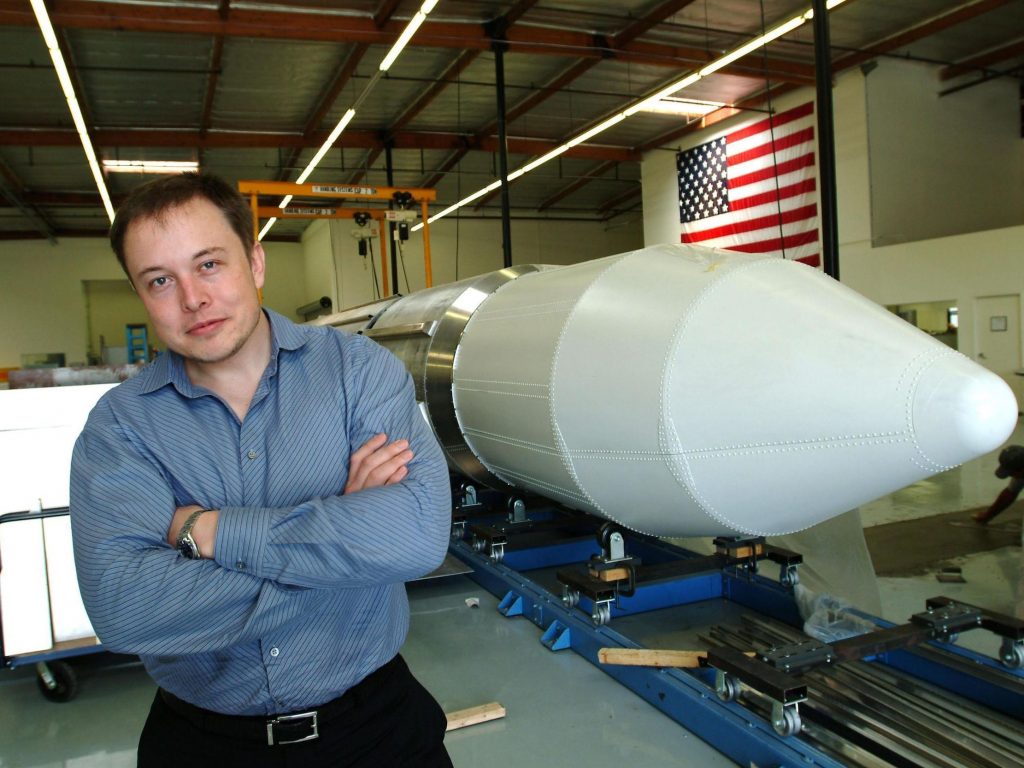- Former NASA Deputy Administrator Lori Garver details how Elon Musk first started SpaceX in a new book.
- Musk decided to launch the company after he was disrespected by several Russians, per reports.
- Garver's memoir follows the commercialization of space and her history with Musk and Jeff Bezos.
Former NASA Deputy Administrator Lori Garver recalled how Elon Musk was inspired to start building his own rockets in her recent memoir.
The SpaceX CEO famously decided to launch his own space venture after he was spat on by a Russian engineer in 2001. Garver commented on the incident in "Escaping Gravity: My Quest to Transform NASA and Launch a New Space Age," published June 21.
"This act so completely offended Elon that he decided on the flight home that he would start his own rocket company to compete with them," Garver wrote. "If Helen of Troy had a face that launched a thousand ships, this was the spit that launched a thousand spaceships."
Garver's book follows the commercialization of the US space industry during her time as the Deputy Administrator for NASA under the Obama Administration. The book highlights Garver's efforts to make space travel more affordable, despite pressure from NASA to keep production in-house.
Garver first met Musk in the summer of 2002. The two discussed NASA's reliance on Russia, she said. At the time, she had just completed a stint in Russia, training to go on the nation's Soyuz rocket — an experience that she lost out on due to a competing bid from singer Lance Bass.
The former NASA official is not the first to detail the incident. Last month, SpaceX Co-Founder Jim Cantrell said the Russians treated Musk poorly when he took him to Moscow to negotiate a deal to buy space rockets for a future mission to send mice or plants to Mars.
"The chief designer was getting very agitated as Elon spoke," Cantrell said in a Channel 4 documentary that aired in May. "The chief designer got tired of listening to him and he spit on our shoes," he added.
Cantrell said he thinks the Russians viewed Musk's informal attire as a "sign of disrespect." In her book, Garver said Musk's "disrupter mentality and lack of deference toward the traditional industry" often had a similar impact on NASA and White House workers.
The Co-Founder described the situation similarly in a biography on Musk by Ashlee Vance, "Elon Musk: Tesla, SpaceX, and the Quest for a Fantastic Future."
He said the Russians treated Musk poorly over the course of several conversations in Moscow. The Russians were more interested in small talk and enjoying drinks, while Musk was anxious to get down to business, according to the biography.
"They looked at us like we were not credible people," Cantrell said according to Vance's book.
The co-founder said the chief designer spit on them because "he thought we were full of shit." Even Musk's close friend, Adeo Ressi, questioned whether the dot-com millionaire may have gone "insane," Vance wrote.
The Russians ultimately could not agree on a price with Musk and he "stormed out of the meeting," according to the book. But, it was on the flight home that Musk came up with the idea to build his own rockets, Cantrell told Vance.
SpaceX was founded as Space Exploration Technologies Corporation less than a year later. It has grown to become one of the most valuable private companies.
Last year, SpaceX launched the world's first all-civilian mission to orbit. The company has a contract to create a lunar lander for NASA and is preparing to launch one of the most powerful rockets in the world by the end of the year, per Musk.
Meanwhile, Musk's rivalry with Russia has continued for decades. Most recently, the billionaire engaged in several Twitter spats with Roscosmos Chief Dmitry Rogozin.

